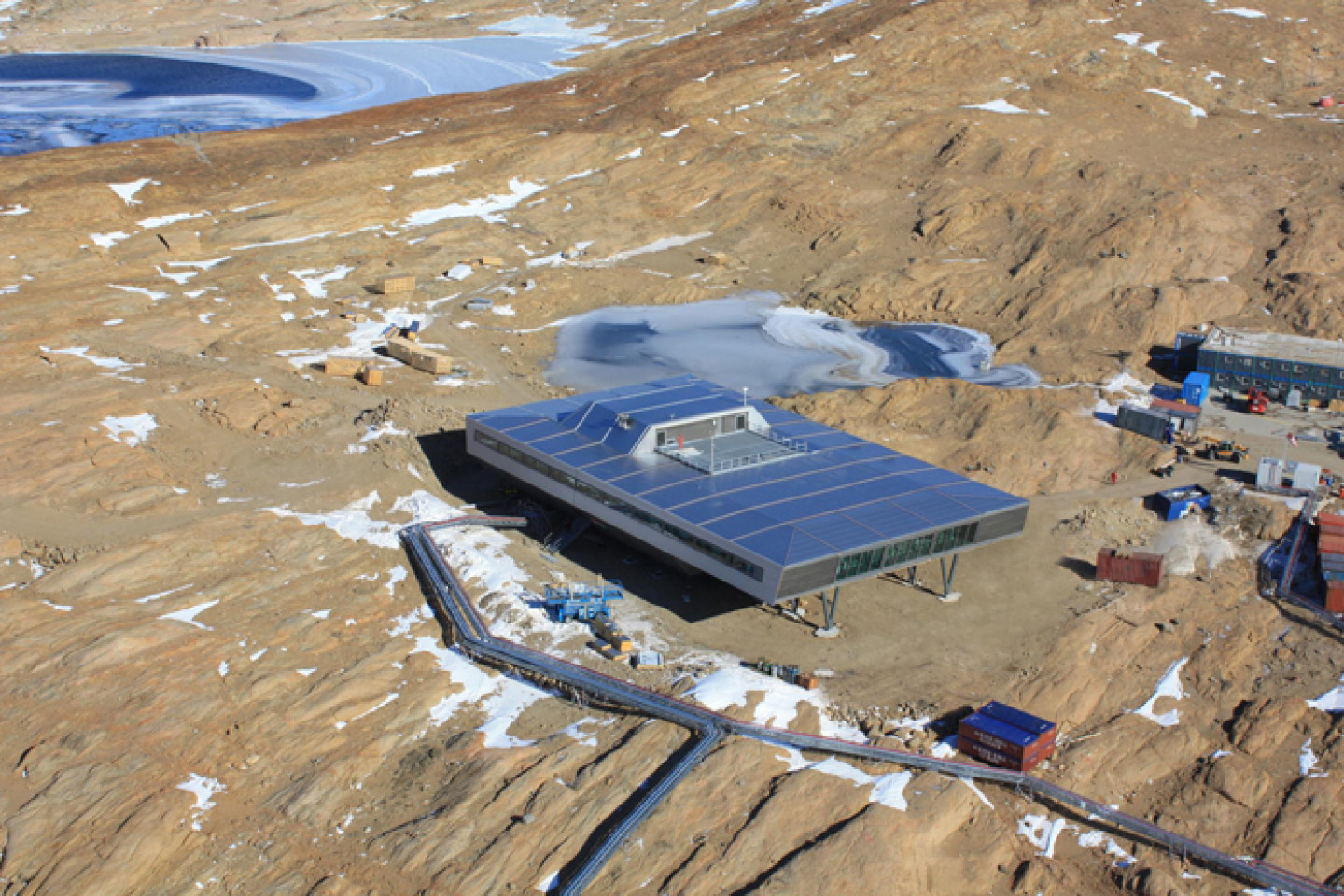Designed by Hamburg-based architects, bof Architekten, the research station Bharati is being sited on the Antarctic coast, having been transported from Germany via South Africa by ship as a series of prefabricated modules.
Some of the Earth’s Most Severe Climatic Conditions
The station’s aluminium façade will be subjected to the severe climatic conditions of the South Pole, which include abnormally high thermal and mechanical loads caused by blizzards, huge quantities of snow, high wind speeds and temperatures of -40° and below.
A large proportion of the building’s façade has been glazed using Wicona’s specially adapted WICTEC 50 curtain walling system. This features triple glazing, highly insulated panels, an incline of up to 15° at the two narrow ends, and will achieve a U value of 0.8 W/m2K. The system also had to allow for the assembly and disassembly of the façade for testing purposes in Germany before the final installation in the Antarctic.
A High Level of Glazing to Counter Staff’s Sense of Confinement
By incorporating a high level of glazing into the station’s design, the 25 staff working there will have a magnificent view of their polar location and it will counter their sense of confinement. 15 scientists and logistics staff will live and work in the station all year round.
Bharati is India’s third research base in Antarctica. It is a two-storey structure, raised on stilts and is designed to have a life span of 25 years, as well as to minimise any impact on the environment. It uses combined heat and power from renewable sources for heating, low sulphur fossil fuel, efficient treatment of effluent, and all hazardous and sanitary waste will be transported back to the mainland for disposal.
A Prefabricated Building
The research station weighs around 1,000 tonnes and comprises 134 prefabricated modules which were transported by ship from Antwerp to Cape Town. In South Africa, a further 50 modules that make up the construction camp were taken on board for the 5,200km journey by sea to the site in the Larsemann Hills on the northern edge of the Antarctic.
The team based at Bharati will carry out cutting edge multi-disciplinary research and observation studies, including the movement of platonic plates, microbes surviving in the atmosphere and meteorological sciences.
Wicona offers a range of technically advanced glazing systems for complex and bespoke aluminium façades. Its products include unitised and stick curtain walling, structural and roof glazing, highly insulated window systems and heavy duty doors.
The project team for the new research station includes:
- Architects: bof Architekten
- Main contractor: Kaefer Construction GmbH
- Façade system: Wicona
- Façade contractor: Lenderoth GmbH

